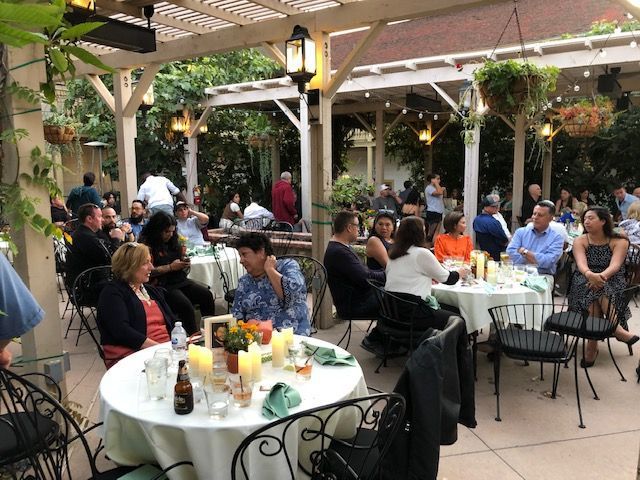What is a Eulogy?
A eulogy speech, written or spoken, that praises the life of someone who has died. It is usually given at a celebration of life, funeral service, or memorial service.
In ancient Greece and Rome, a eulogy or funeral speech was an oral history of the deceased person’s deeds. In ancient Rome, it was customary to deliver a eulogy as part of the funeral ceremony.
A eulogy is typically given by a family member or friend of the deceased at the funeral. A funeral speech is typically about 5-10 minutes long. A good one will be heartfelt and personal, but not overly emotional or maudlin. A meaningful eulogy is a way to pay tribute to someone you have lost. It should be about the person who has died, rather than about how sad you are for yourself.
Writing a Eulogy for a Funeral Service
Eulogy writing does not always come easy. If you are a close family member or are writing a written eulogy for someone you knew well, then you might find it easier to think of things to say about them. You can share your best stories, your memories of the person, or talk about the person’s character.
It is also okay to remember funny stories you had with the person when writing the eulogy. If you are writing it for someone that you did not know very well, the best thing to do is to think about what kind of person they were and what they stood for.
Step By Step Guide to Write a Eulogy
A eulogy can include anything that you think is important. When you write the eulogy you want to keep it mostly fact-based, written in chronological order. Below is a step-by-step guide to help you write a eulogy:
Step 1:
Decide what tone you want to use. How do you want to pay tribute?
Step 2:
Give a brief introduce of yourself. Remember to speak slowly during the eulogy, make eye contact. It’s a good idea to practice reading before you perform the eulogy. Public speaking takes practice, especially in a situation like a eulogy.
Step 3:
Provide a biography of your loved one. Keep it somewhat short, you do not necessarily want to tell their whole life story.
Step 4:
Talk about some of your favorite memories with your loved one.
Step 5:
Organize your materials.
Step 6:
Show gratitude with a small personal note.
Step 7:
Closing & your final goodbye.
How Long Should a Eulogy Be?
Normal, a eulogy is 3 – 4 minutes in length and can last for up to 10 minutes. Usually funeral venues give the funeral time. The funeral director will advise you on the time a funeral is due for eulogy.
What Should be Included in a Eulogy?
Eulogy statements may include anything you think is important. Generally, you can make it factual, arranged chronologically with a note of memory at the end. Or you might use personal anecdotes or personal experiences that show how you feel. Some are lighter anecdotes and that usually helps to relax.
Why is a Eulogy Important?
Hearing the eulogy helps to remember that he or she has departed to mourn. A good eulogy should not just describe the person’s life and impact but, where possible, it should shed some of its lesser-recognized attributes. Eulogies are an opportunity for friends and family to think about the person who has died, and to remember them in the best way possible.
Remembering a Person’s Life
Funeral speeches are a great way to remember someone’s life. It is not always easy to speak at a celebration of life or funeral, especially if you were close friends or a family member of the person who died. A great way to remember the person is to share stories about their life.
Involve Family Members
Eulogies are sometimes given by the deceased’s children or grandchildren to honor their parent or grandparent.
The eulogy should be written in a way that conveys the feelings of the speaker and honors the memory of the deceased person. The speech should be short, but it can include stories from throughout the person’s life as well as memories from those who knew them best.
Losing a Family Member
The death of a family member is an emotional and difficult time. It can be hard to know what to say, do, or think. It sometimes helps to find a trusted friend or family member to talk to.
Here are some ways to cope with the loss of a loved one:
- Grieve in healthy ways
- Seek support from friends and family
- Write about your feelings
- Spend time outside
- Find meaning in the loss
A Celebration of Life with Eternally Loved
When we love someone and they pass, we want to celebrate who they were and their life fully. Eternally Loved specializes in creating Memorial events that focus on the life that was lived so you can celebrate the way you remember them.
Yes there will be tears, but rather than mourning the passing by having a sad, black, impersonal funeral you want to have a beautiful tribute that really highlights the life of your loved one by tailoring to their likes and personality.
Eternally Loved assists in planning and executing the celebration event. Instead of worrying about all the plans and day-of logistics, you will experience a terrific celebration honoring the tremendous life of your loved one. Spend this time by being surrounded by your friends and family, not worrying about what time the caterer is getting there.
Living Funeral
A living funeral, living memorial or pre funeral service is a life celebration that takes place in the presence of the deceased. It offers an alternative to traditional funerals.
A living funeral or living memorial is an event that takes place before the funeral with the intention of preparing for the person’s death.
Planning for End-of-Life Checklist
The following are some of the steps that can be taken in order to plan for end of life:
- Find out what you want to do with your assets and how you want it to be distributed after your death.
- Plan the funeral or memorial service. This step will depend on your religious beliefs, culture, and personal preferences.
- Determine whether you want to donate your body or organs after death.
- Decide whether you want a burial or cremation service.
- Make sure that all legal matters are taken care of before death so that there are no

Non-Religious Funeral Readings
A non-religious funeral reading is an important part in the ceremony of a funeral. It is usually done by someone who knew the deceased best. It can be a family member, friend, or even a close neighbor. The reading is often chosen by the deceased before they died.
Non-religious readings are often chosen to reflect the person’s personality and interests – for example, if they were an avid gardener, then their favorite poem might be read during their funeral service. The readings are also chosen to provide comfort and closure to those who are grieving.

Final Wishes Planning
One of the most important aspects of any estate plan is to draft a will. A will is the document that contains your final wishes for how you want your assets distributed after you pass away.
A will also names an executor to carry out your wishes and make sure everything is done according to your instructions. The executor can be a family member, attorney, or financial institution.
The process of drafting a will can be complicated and time-consuming, but there are many online tools that can help simplify the process. These tools allow you to create a customized template that suits your needs and then generates an editable version for you to review before finalizing it.



